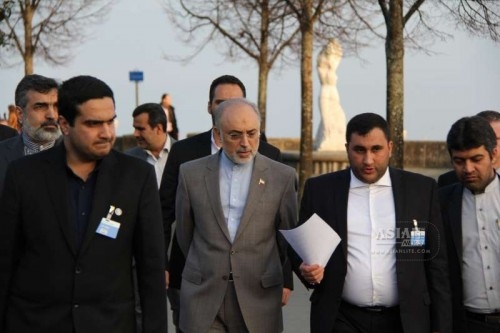
Iran and the world powers will begin new negotiations to finalise an accord on the country’s nuclear issue in the Austrian capital of Vienna.
Iranian deputy foreign minister and senior negotiator Abbas Araqchi will meet EU political director Helga Schmid to resume drafting of the text of the deal before the end-of-June deadline, Tasnim news agency said.
“We are after a good agreement, but we will not give in to excessive demands by the opposite side under any circumstance,” another Iranian nuclear negotiator, Majid Takht-e-Ravanchi, was quoted as saying on Monday.
Also on Monday, Hamid Baeidinejad, a member of the Iranian negotiating team, said the International Atomic Energy Agency (IAEA) will not be allowed to inspect Iran’s military sites.
Iran’s military facilities have nothing to do with the nuclear issue and need not be inspected by the UN nuclear agency, Baeidinejad said.
Baeidinejad’s remarks came after IAEA Director General Yukiya Amano said on May 12 that a nuclear agreement by Iran and the P5+1 group — the US, Britain, China, France, Russia, plus Germany — would give the agency’s experts the right to push for access to Iranian military sites.
Iran and the P5+1 have held many rounds of talks on a comprehensive nuclear accord since 2008.
The latest round of talks between Iran and the P5+1 concluded in Vienna last Friday.
Iran’s nuclear programme has long been a subject of concern for western powers, who believe it to be geared toward developing nuclear weapons. Iran insists it has an inalienable right to develop its civilian atomic plan.